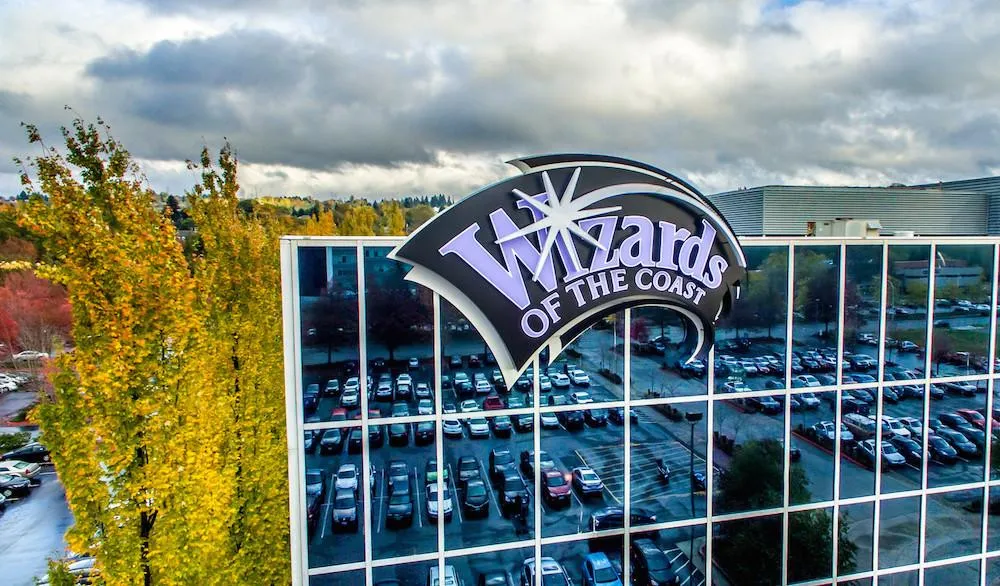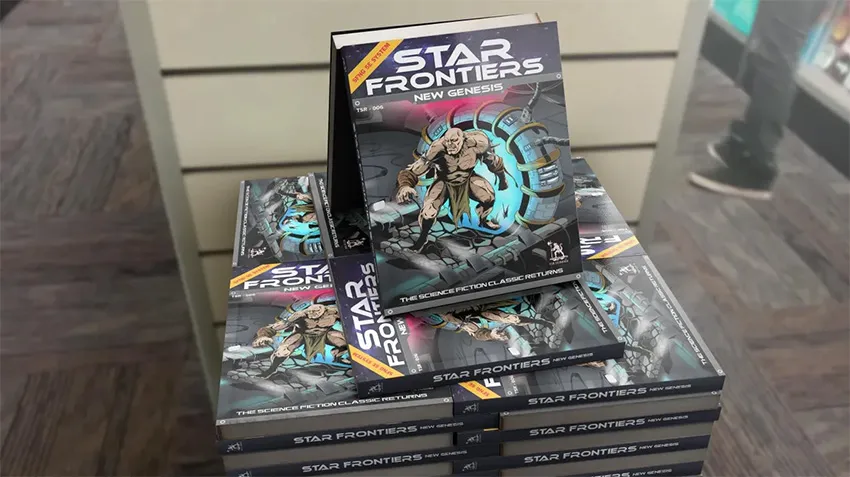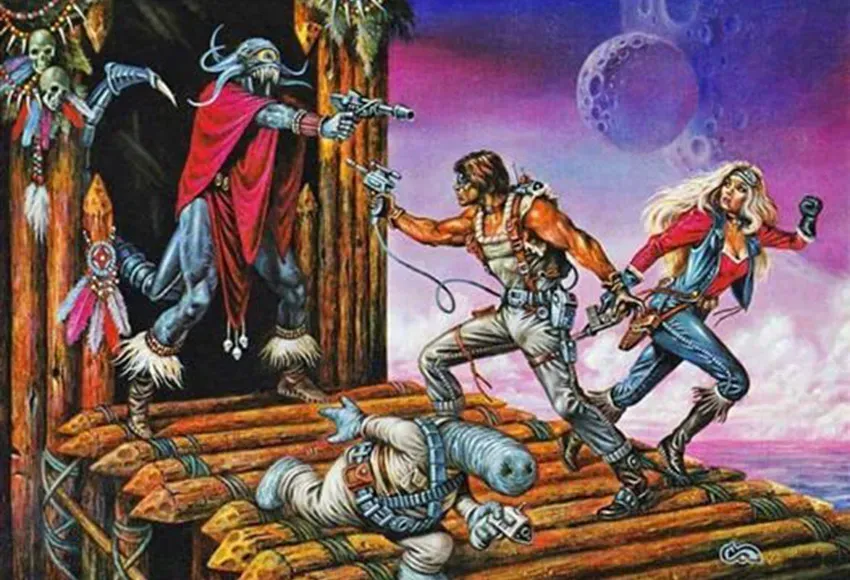With the massive popularity of its role-playing game Dungeons & Dragons (D&D) only growing, Renton-based tabletop gaming giant Wizards of the Coast (or just Wizards) is suing TSR Games for its racist, homophobic, and otherwise "reprehensible" content.

Wizards is tough to reach on a good day, especially on matters concerning diversity, inclusion, and political issues in general. It makes its official positions clear enough through the standard corporate channels, like statements and rainbow logos on social media during Pride, but it has also taken more concrete actions to support the Queer community.
Queer representation in Wizards media has steadily improved, and in June this year, the company featured a few fictional same-sex couples in the art of a special release of Magic: The Gathering cards, with half the money from purchases being donated to the Trevor Project. In previous years, it has held similar fundraisers for the local LGBTQ youth organization Lambert House.
On a broader note, the website of Wizards's parent company, Hasbro, boasts a "100 percent score on the Human Rights Campaign's 2020 Corporate Equality Index Survey," and of its use of "inclusivity workshops."
Until two weeks ago, Wizards had mostly kept to its community and itself, focused inward – a noble act when the corporate world is so averse to introspection, and no doubt a difficult one given the troubled history of its other major intellectual property, Dungeons & Dragons – that is, an IP created in the '70s by straight, white, cisgender men Gary Gygax and Dave Arneson.
Exorcising the pale ghosts of that game's origins has been, without a doubt, a big part of Wizards' version of the D&D project. It suffers enough for being rooted in the Western fantasy genre, which in turn is heavily influenced by J.R.R. Tolkien's notoriously man-centric and racially controversial Lord of the Rings trilogy.
But these are restless ghosts. In days of yore (1997), Wizards acquired the nearly insolvent TSR, Inc., and with it the Dungeons & Dragons IP. The latter company has been resurrected twice since then, and its second incarnation under Gary Gygax's son, Ernie Gygax, has animated a whole crypt's worth of bad ideas with the reveal of a playtest document of Star Frontiers: New Genesis.

I won't repeat what was written in the playtest, but trust that it's racist and transphobic in a manner so bald-faced that there's no more skin to cover the skull. While past and current editions of D&D are rightly criticized for racial bioessentialism – for instance, its early editions' descriptions of orcs and "dark elves" bear painful parallels to how minorities have historically been denigrated – Star Frontiers throws aside all pretense and façade by all but shouting to the heavens that it's the creation of white supremacist transphobes and worse.
So there's not much unpacking to be done with the playtest (which was leaked in July by the Bellevue-based organization NoHateInGaming), but Wizards' response to it is worth our attention.
On September 9 this year, after previous legal disputes over the Star Frontiers and TSR trademarks, Wizards filed an injunction against TSR for planning to publish racist, transphobic content using a company name and IP closely tied to Wizards itself.
This may seem to some like just another copyright dispute, being spun as a valiant blow against bigotry in tabletop gaming, but it's more complicated than that. The wording of the injunction ties the well-being of Wizards as a company to its reputation, of course, but also by extension to the success of its efforts to promote diversity and inclusion:
"Wizards would be irreparably harmed by the publication and distribution of the game (Star Frontiers) usings its trademarks, because consumers may mistakenly associate Wizards with the reprehensible content of the game," the injunction reads, "damaging its reputation and goodwill and undermining its efforts to foster a culture that embraces diversity around its games."
Here "goodwill" refers to the intangible benefits of a company's good reputation, and potentially its "brand," a word used later in the document. Wizards threw in a few examples of what it has been doing, internally and externally, to build that brand.
Earlier this month, Wizards noted, it responded swiftly to criticisms of its recent D&D release, a reboot of the spacefaring fantasy setting "Spelljammer," by issuing an apology and removing some racially insensitive content from future printings.
The company, the injunction reads, "increasingly uses sensitivity readers and diversity experts in its creative process to ensure that its storytelling reflects its values."
This whole case is unprecedented for a company that usually takes legal action only to prevent online piracy of its content. It's doubtful that Wizards, on its own, could take similar legal action against companies that don't bear its old trademarks.
But the eyes of all tabletop gamers and creators rest on this event, and it has made it clear that the industry's leading company depends not just on the appearance of progressive values, but on actually embodying those values as well. As long as we keep Wizards accountable, it's likely it'll keep working on its ghost problem.
As for the case's success, the injunction does list some precedent from past cases in the 9th Circuit, so I have high hopes that Star Frontiers won't reach distribution – at least, not under the weighty trademarks it uses currently.


